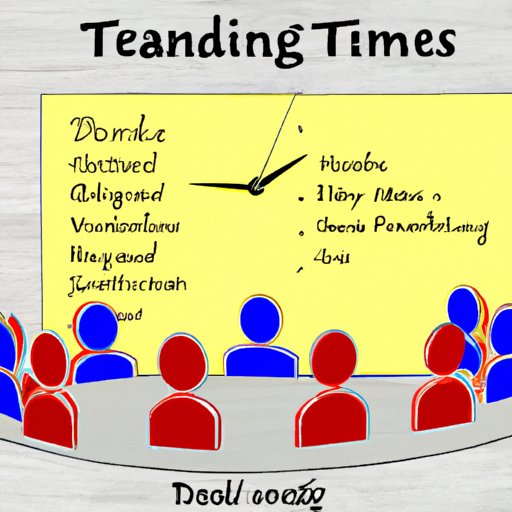Introduction
Meetings are an essential part of many businesses, but they can be inefficient and unproductive if not managed correctly. An effective meeting is one that achieves its goals in a timely manner while engaging all participants. To lead successful meetings, it is important to set a clear agenda, create an open dialogue, stay on track, make decisions, and end on time.
Setting a Clear Agenda
The first step in leading an effective meeting is to clearly establish the purpose and objectives. This will help focus the conversation and ensure that all participants understand the topics that need to be discussed. Once the agenda has been created, it should be communicated to all participants so that they can come prepared with the necessary information. This will also help keep the meeting on track and minimize distractions.
Creating an Open Dialogue
Creating an open dialogue is key to having a productive meeting. All participants should be encouraged to actively participate and share their thoughts and perspectives. This will help ensure that all points of view are taken into consideration when making decisions. It is also important to create an environment where questions and ideas are welcomed and respected.
Staying on Track
Keeping the discussion focused on the agenda items is essential to an effective meeting. The leader should monitor the conversation and redirect it back to the topic if it veers off-topic. This will help keep the meeting on track and ensure that all topics are addressed in a timely manner.
Making Decisions
Decisions should be made during the meeting whenever possible. It is important to make sure that everyone’s opinions and perspectives have been heard before making a decision. Once a decision has been made, action items should be assigned and a follow up should be scheduled for after the meeting.
Ending on Time
Respecting everyone’s time is essential to an effective meeting. Ending the meeting at its scheduled ending time will show respect for all participants and help ensure that the meeting was productive and efficient. It is also important to summarize key points and action items before concluding the meeting.
Conclusion
Leading effective meetings is an important skill for any business leader. By setting a clear agenda, creating an open dialogue, staying on track, making decisions, and ending on time, leaders can ensure that their meetings are productive and efficient. Following these steps will help ensure that all participants feel valued and that the meeting achieves its goals.
(Note: Is this article not meeting your expectations? Do you have knowledge or insights to share? Unlock new opportunities and expand your reach by joining our authors team. Click Registration to join us and share your expertise with our readers.)
